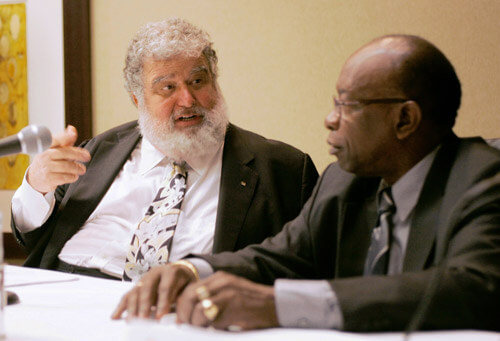When Rep. Jesse Jackson Jr. had to resign his Illinois congressional seat last year in the face of charges he had misused campaign funds on a spree of lavish personal spending, one couldn’t help thinking of the effect this presumably had on the veteran civil rights warrior who is his father. It would be surprising if the elder Jackson, soldiering colleague of Martin Luther King Jr., would not have rekindled thoughts of the martyred icon and others in the struggle, when Congressman Jackson’s fall from grace came. It was, regrettably, hardly an isolated case of people of color being shamed by one of their own, who asked for and received their all-clear for elevation.
No, we don’t have the market cornered, as far as wrongdoing in high places. But whoever said so long as that dubious distinction doesn’t rightly belong in this camp, it’s all good? Relatively speaking, it’s not all that long ago that black occupancy of certain strategic parts of the power grid was a no-no. And a sense of complacency that conveniently ignores the battle scars hard earned by forebears is to be frowned upon every bit as, indeed even more than, a fawning, don’t-belong-there obsequiousness.
It matters not that Congressman Jackson’s train may have simply run off the rails after embarking on a journey that was framed by high-minded intentions. That a capacity for wrongdoing ultimately manifested itself conveyed unambiguously that this was yet another individual upon whom leadership was ill-advisedly thrust.
In New York, we were reminded again the other day how flippantly some would-be leaders among us turn on its head the idea of service to the people. State Senator Malcolm Smith, a Queens Democrat, was one of a small knot of players arrested in connection with a bribery scheme in which Smith was allegedly fixing to run for mayor of New York on a Republican line. Based solely on the far-fetched nature of this so-called plot, you want to believe that the prescribed punishment wouldn’t be quite adequate if the prosecution has its way (wiretap evidence would seem to make the odds rather long for the other side), if only because of how boneheaded the whole thing sounds.
It’s beyond ludicrous, the notion of “serious” discussions taking place, involving payoffs and all, centering on a guy whose electability ranking among mayoral wannabes is probably some number the computers can’t quite read. And yet Smith, who is no rookie in the politics game, either crafted on his own or was roped into, a scatterbrained bit of child’s play whose consequences look to be so devastating. What drives a fellow to press on undaunted into such foul territory? Reporting on the scandal, the New York Times referenced Smith as “a near perennial subject of corruption inquiries.” Which, if it’s telling us anything, is more importantly underscoring our perplexity as to the why of it. Whence comes the motivation to surrender so completely to forces whose unyielding darkness cannot but portend the inevitable?
Carolyn Kilpatrick began serving as a member of Congress from Michigan in 1996, and it would obviously be her preference to be still serving in that capacity today, as opposed to having had her tenure aborted in 2010, when she was defeated. The educated speculation around that defeat attributed a lot of it to her son Kwame Kilpatrick and the royal mess he had gotten himself into as Detroit’s mayor. Young Kilpatrick had turned bright promise into utter disgrace after becoming Detroit’s youngest mayor when elected in 2001 at age 31, and descending fairly quickly into what was exposed as a pervasively corrupt stint in City Hall. It involved, among other things, massive personal misuse of public funds, with an affair Kilpatrick had with one of his staffers thrown in for good measure. Hizzoner’s murky trail earned him a 2005 Time magazine designation as one of the worst mayors in the country. And he bears the tag of “convicted felon” a few times over, the latest last month when he was convicted on 24 federal felony counts.
Do persons of such bent really not know that offering themselves for public service isn’t exactly the most informed career choice they might make? Or is it that those tendencies toward dirty dealing of some sort remain repressed until the power aphrodisiac kicks in? Chances are that Jackson, Smith and Kilpatrick said all the right things early on, hinting at a desire to walk with giants. We need bring commensurate outrage to their veering off on a road to perdition. And finding a comfort zone in the knowledge that others outside of this camp have been much bigger perpetrators of this evil, and for much longer, that’s what copping out is all about.
We owe it to ourselves to subscribe to a higher code. And we owe it to King, A. Philip Randolph, Rosa Parks, Roy Wilkins, Whitney Young and countless others whom we dishonor with these severely compromised representations of leadership in the ranks. It was a righteous voice that prevailed and gave the vote and a long-sought measure of dignity to folks whose place outside the margins many assumed to be pretty well fixed. It took abundant effort to get from there to here. It should follow reasonably that conduct among aspirants for pointing the way, which reflects indifference to Selma and Birmingham, to Lester Maddox and Orval Faubus, is conduct that must be condemned.

























